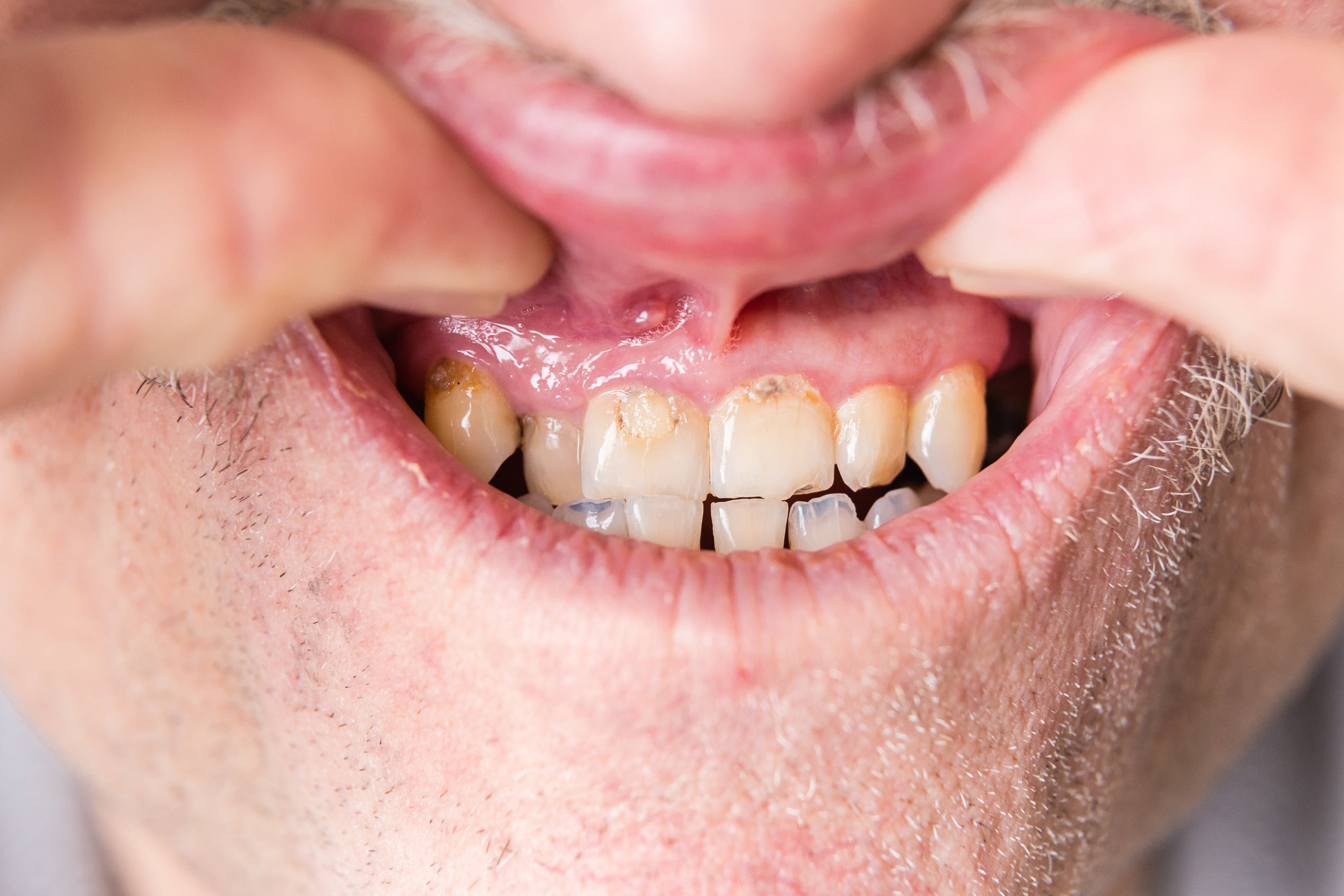Article
Periodontal Disease Precedes Rheumatoid Arthritis Diagnosis
Author(s):
Periodontal disease and periodontal inflammation appear to be present in individuals who are at risk of developing rheumatoid arthritis long before they begin to show signs of disease, shows new research published in JAMA Network Open.
(©Nat2851Terry,AdobeStock)

Periodontal disease and periodontal inflammation appear to be present in individuals who are at risk of developing rheumatoid arthritis long before they begin to show signs of disease, shows new research published in JAMA Network Open.
It has long been suspected that rheumatoid arthritis and periodontal disease are directly related. But periodontitis and citrullinating bacteria have never before been studied in at-risk individuals-until now.
In this study, led by Paul Emery, M.D., FRCP, of the Leeds Institute of Rheumatic and Musculoskeletal Medicine in England, researchers identified a prevalence of periodontitis and Porphyromonas gingivalis (P. gingivalis) in at-risk rheumatoid arthritis individuals defined as those who test positive for anti–cyclic citrullinated protein (anti-CCP) antibodies. The findings could lead to new targets for disease prevention interventions.
“These data suggest periodontal inflammation and the enrichment of P. gingivalis may precede
joint inflammation in rheumatoid arthritis and support an association between these risk factors and disease initiation,” the authors wrote. “This study adds to an emerging evidence base linking periodontal and systemic disease and, therefore, further highlights the potential importance of improving dental health and reducing the burden of periodontal disease on the risk of chronic systemic diseases such as rheumatoid arthritis.”
RELATED: What’s next for rheumatoid arthritis-associated periodontal disease?
THE STUDY
This was a cross-sectional study of 48 anti-CCP individuals (average age 51.9 years, 65 percent female) without arthritis: 26 had early rheumatoid arthritis and 32 were healthy controls. Of these, 46 showed no signs of joint inflammation; 35 anti-CCP individuals had clinical periodontitis as did 12 healthy controls and 14 patients with early rheumatoid arthritis.
Periodontitis was present in 73 percent of anti-CCP-positive at-risk individuals, 54 percent of early rheumatoid arthritis patients, and 38 percent of healthy participants.
The anti-CCP individuals had more inflamed surface areas and an increased risk of P. gingivalis than the healthy controls or individuals with early rheumatoid arthritis. They also had higher levels of P. gingivalis at healthy periodontal sites than did either healthy participants or individuals with early rheumatoid arthritis.
P. gingivalis levels in subgingival plaque were more prevalent in healthy, but not diseased, periodontal sites of the CCP-positive group as compared with healthy individuals and patients with early rheumatoid arthritis. The difference may be due to the fact that 62 percent of individuals were receiving DMARD treatment.
Despite the increased presence of P. gingivalis, periodontal disease, and periodontal inflammation, anti-CCP-positive at-risk individuals did not have joint inflammation. In fact, researchers reported almost all-96 percent-of had no synovitis based on ultrasound imaging. The presence of periodontal inflammation before joint inflammation supports the hypothesis that the periodontium is a mucosal site of disease inflammation.
This study increased what investigators know about the connection between periodontal disease and rheumatoid arthritis. Although the association between both conditions has been previously established by existing research, this study demonstrates that, while not accurate for every individual, the presence of P. gingivalis and periodontal disease can be a trigger in individuals at risk for developing rheumatoid arthritis.
REFERENCE
Kulveer Mankia, DM, MRCP; Zijian Cheng, PhD; Thuy Do, PhD; et al. "Prevalence of Periodontal Disease and Periodontopathic Bacteria in Anti–Cyclic Citrullinated Protein Antibody–Positive At-Risk Adults Without Arthritis." JAMA Open Network. June 7, 2019. DOI:10.1001/jamanetworkopen.2019.5394
Hubert Marotte, MD, PhD. "Determining the Right Time for the Right Treatment-Application to Preclinical Rheumatoid Arthritis."JAMA Network Open. June 7, 2019. DOI:10.1001/jamanetworkopen.2019.5358




